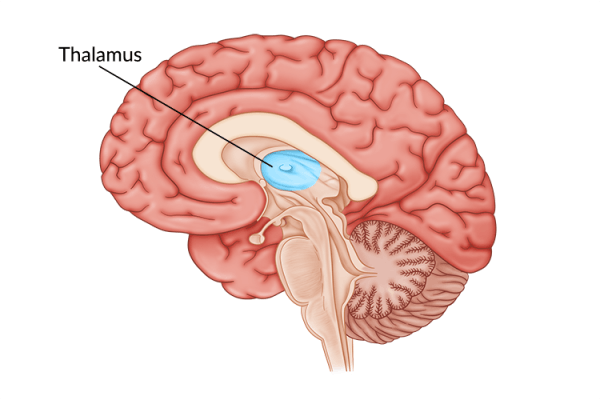Life after brain injury will be full of challenges. But it is possible to overcome these obstacles. In this article, we’ll show you what you can expect life after brain injury to look like, what treatment approach works best, and what you can do to help improve your quality of life.
Use these links to jump ahead to a relevant section:
- What Will Life After Brain Injury Look Like?
- How to Recover Function After Brain Injury
- How to Improve Your Quality of Life After Brain Injury
What Will Life After Brain Injury Look Like?
Traumatic brain injury can cause severe physical and cognitive limitations. While it is possible to recover from many of these, they can still present significant challenges in your daily life.
The following are a few examples of some of the most common secondary effects you might experience after brain injury:
Physical Symptoms

Severe TBIs can cause various physical symptoms, including:
- Dizziness and balance issues
- Severe headaches
- Spasticity
- Muscle weakness and atrophy
In addition to these symptoms, patients can also experience seizures. These mostly only occur after certain types of traumatic brain injuries, however.
Sensory Problems
A traumatic brain injury can also disrupt the brain’s ability to process the senses. For example, TBI can lead to many visual problems, including:
- Double vision
- Hemi neglect or inattention to one side of the environment
- Light sensitivity
- Loss of depth perception
Besides problems with vision, a severe brain injury can also cause the person to have tactile sensory changes, or even lose their sense of taste and smell, a condition known as anosmia.
Cognitive Impairments
Perhaps the most common difficulties that patients experience after brain injury revolve around cognitive impairments. These include issues such as:
- Attention problems
- Difficulties with decision making and other executive skills
- Memory issues
- Lack of insight
Fortunately, you can treat these and other cognitive issues with cognitive exercises for TBI patients.
Emotional Problems

Finally, patients can develop several emotional problems after brain injury. These are primarily caused by frontal lobe injuries.
Some emotional changes that occur after brain injury include:
- Anxiety
- Low motivation
- Depression
- Severe mood swings (emotional lability)
- Lack of emotional expressiveness (flat affect)
Besides all these symptoms, people with a brain injury can sometimes also develop PTSD from the traumatic event. However, not everyone who sustains a TBI develops PTSD. PTSD tends to go more hand-in-hand with mild TBI, because with more severe injuries, the individual typically does not remember the incident that caused it and may not even be aware that they are injured.
PTSD causes many of the same symptoms as brain injury, but they are accompanied by heightened sensitivity to danger and involuntary memories of the traumatic event.
How to Recover Function After Brain Injury
The above list of symptoms above can seem overwhelming at first, but it is important to realize that not every person will experience every secondary effect.
Still, it can be helpful to know what symptoms you may experience after brain injury. That way you can take the correct actions to minimize their severity.
In fact, many of these symptoms can be treated by activating a process called neuroplasticity. This term refers to the brain’s ability to repair neural connections. It allows people to regain functions even after a devastating injury.
Engaging Neuroplasticity After TBI

The key to activating neuroplasticity lies in therapeutic exercise. That’s why doctors encourage so much therapy in the early stages of recovery.
Even after you return home, it is critical to continue with regular therapy. If you struggle to remember your exercises, have your therapist write you a home exercise sheet to help you know exactly how to do them.
There are also home therapy devices, such as FitMi, which walk you through common exercises. Many patients find that these devices help them stay motivated in a way that hand-out sheets do not.
Beyond exercise however, there are other activities you can practice to improve your life after brain injury. We will discuss those in the sections below.
How to Improve Your Quality of Life After Brain Injury
While life after brain injury will not be easy, it is still possible to achieve happiness. Your life may look a lot different now, but it can still be worthwhile.
The following are a few ways to accomplish this:
1. Follow a Brain Injury Diet Plan
A proper diet plan can boost brain injury recovery. Therefore it’s important to consume foods that promote healthy brain function, such as foods rich in flavonoids and omega-3.
The following are a few examples of the best foods for brain injury:
- Fatty fish, such as salmon and mackerel
- Dark chocolate
- Dark, leafy greens such as kale and spinach
- Eggs
- Berries
- Walnuts
- Turmeric root
In addition, it is crucial to avoid fried and processed foods as much as possible after brain injury, as these foods increase inflammation and hamper neuroplasticity.
2. Create a structured routine

In the early stages of your brain injury recovery, your days were most likely fully planned out by others and filled with appointments. If you are like most brain injury patients, however, this schedule didn’t last forever.
Unfortunately, many TBI survivors fall into an unhealthy routine when their schedule opens up. For example, they might sleep in late, spend the afternoon surfing the internet or watching TV, take a nap, and start the routine all over again the next day.
This isn’t meant as a negative judgment. Brain injury makes it much more difficult to make decisions and initiate activities. Therefore, you are not lazy. You might just need help changing your habits.
That’s where a structured routine comes in. It helps you know “what’s next” without having to come up with something on your own every time. That way, you can stay active and prevent decline. Simply engaging in your everyday activities regularly (brushing teeth, getting dressed, bathing, etc.) is a form of “exercise” after TBI, and will boost your recovery if you try to consistently participate.
3. Focus on small victories

It’s important to keep your focus on small victories in the early days of your recovery. This can help you stay motivated to continue your recovery.
For example, instead of focusing on what you have lost, focus on what you have gained during your recovery. Maybe you couldn’t even stand up at all when you first started therapy, and now you can stand for ten seconds unsupported. That’s a big deal, and you should be proud of yourself.
This fact is true for everyone, with or without a brain injury. If you only consider how far you still need to go to get where you want, you’ll soon get discouraged.
But if you break it down into smaller pieces, you’ll find it much easier to stay positive.
4. Stay Physically and Socially Active

As you gain more abilities back, it’s important to stay both physically and socially active.
The more active you are, the more your brain gets stimulated, which helps create new neural pathways and promotes better brain function. Similarly, interacting with peers improves your cognitive function and helps fight off feelings of depression.
If possible, try taking part in some recreational therapy activities for traumatic brain injury patients. These activities are fun ways to stay active and find a social group that understands and supports you.
You can also try volunteering at your local church or charity. Many people find that helping others makes their life after brain injury meaningful again. The key is to have something that keeps you engaged and outside the house at least once a week. This helps improve both your TBI symptoms and your quality of life.
Living Your Life After Brain Injury
As you can see, brain injury doesn’t have to be the end of your story. There are many ways to make your life after brain injury a rewarding experience.
It all depends on how you choose to see your new life. As cliche as it may sound, your attitude really does make all the difference.
If you choose to stay positive and keep yourself active, you’ll have an easier, more fulfilling life than if you focus on the negative.
Yes, life may never look like it did before your injury. Some activities will always be more difficult than they are for others. But this doesn’t mean your life will be empty. You can still find joy and happiness in life after your brain injury. You just have to know where to look.










